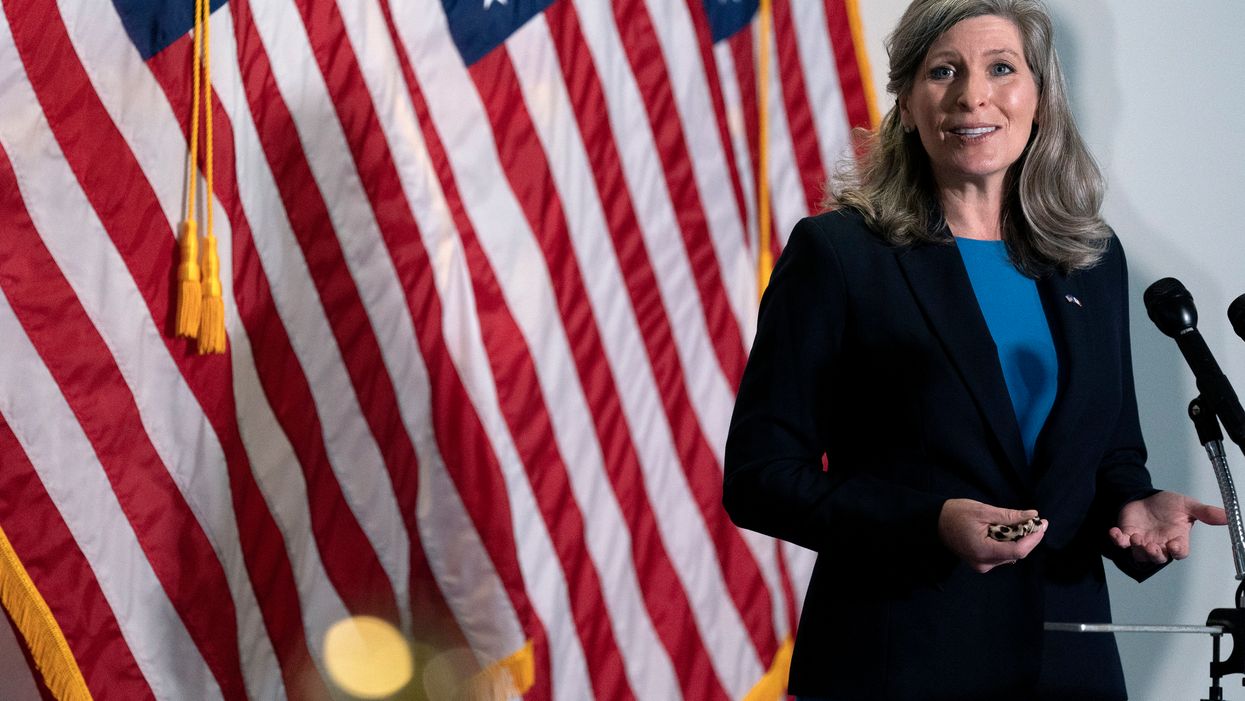Here's how far the Federal Election Commission has sunk in failing to carry out its job of overseeing the rules of presidential and congressional campaign finance.
Barring a highly unlikely turn of events, a sort of line of shame will be crossed in three months: For the first time, responsibility for enforcing the laws regulating money in federal politics will essentially pass to the citizenry, sidelining the agency created to do the work.
The FEC has not had enough commissioners to do any substantive business for almost all the past year, a consequence of the partisan deadlock over campaign finance regulation. Odds are scant any new members will be confirmed until after January's inauguration. And right around then, a dispute will have been gathering dust for so long at the FEC that the case can be moved to federal court.
While FEC decisions can be appealed to federal judges, this looms as the first time in the agency's 46-year history when a campaign finance dispute would start at the courthouse.
The Campaign Legal Center, a money-in-politics watchdog, filed a complaint against a political nonprofit called Iowa Values, which has helped promote the re-election campaign of Republican Sen. Joni Ernst. The CLC believes the organization has violated federal campaign finance law by not registering with the FEC and not filing regular reports showing who has donated to the group and how those funds are being spent. Others have complained that Ernst's campaign has illegally coordinated its efforts with the so-called dark money group.The group filed papers with the FEC in December asking for an investigation. But no action has ever been taken, because it takes four commissioners to consider the matter and there have been only three on the job for 12 of the past 13 months.
Last week, a federal judge invoked a wrinkle in federal law providing that, if the FEC sits on its hands and doesn't do its job for long enough, private individuals have the power to pursue alleged campaign finance scofflaws through the courts. In what's termed a default judgment, Judge Royce Lamberth told the agency to do something with the case by Jan. 12 — or else stand aside as the CLC takes Iowa Values to court on its own.
"It's really unfortunate that we are weeks away from a federal election and the agency tasked with oversight of campaign finance laws lacks a quorum to do its job," said CLC attorney Erin Chlopak, who is handling the Iowa Values lawsuit.
Previously, the private cause of action provision in federal law has been invoked by groups that filed complaints with the FEC and were not happy with its decision, which over the past decade has more often than not been to dismiss the matter.
The case took a strange twist two days after the judge's ruling, when the Justice Department asked Lamberth to reverse himself and dismiss the case on the grounds the watchdog group lacks legal standing to sue. What makes the filing strange is that the FEC is an independent agency with its own legal staff, and Justice attorneys admitted in their filing that they don't represent the FEC.
"It is notable that DOJ is inserting itself into this lawsuit, the underlying allegations of which concern apparent campaign finance violations by a political ally of the president," said Chlopak.
Ernst has been a stalwart ally of President Trump. She's in a tossup fight for a second term against Democratic businesswoman Theresa Greenfield. Even if she loses, the importance of the case to the cause of campaign finance regulation will not fade.
The Campaign Legal Center has filed three other federal lawsuits this year hoping to push the FEC to act on its complaints. A judge is expected to rule soon in the group's favor in one of them. Brought two years ago, it alleges that a group called the 45Committee spent $22 million on advertising, consultants and other expenses in support of Donald Trump and attacking Hillary Clinton in the last presidential campaign without registering as a political committee and reporting its donors and spending.
The FEC also has not taken action on a complaint filed in 2015 regarding the Right to Rise Super PAC, established to support then-Gov. Jeb Bush of Florida's presidential bid. The lawsuit in that case says the "prolonged inaction has fostered a Wild West atmosphere in the financing of campaigns for federal office allowing wealthy donors, including corporations and unions, to sidestep (federal election law) contribution limits and disclosure requirements."
Trey Trainor, who joined the FEC this spring as Trump's lone nominee, issued a lengthy statement in August on the "dangers of procedural dysfunction" at the agency, in which he argued that the attempts by CLC and other groups to bring private actions were an unwelcome development.
"A dangerous paradigm shift is happening in federal campaign finance law that is threatening Americans' free speech rights," he wrote. "Outside groups," he said, "are "seeking private enforcement of the federal campaign finance laws and using the courts to get their preferred policy positions enacted."
The FEC has not had a full complement of members since March 2017. It did not have the four needed for a quorum between August 2019 and May, when the Senate confirmed Trainor. But a week after the first meeting in months, in June, Commissioner Caroline Hunter resigned and the panel was shorthanded again.
Trump immediately promised to nominate conservative attorney Allen Dickerson as her replacement, but the Senate did not even receive the paperwork until last month. No hearing has been scheduled, and Democrats have vowed to do what they can to stall confirmation unless nominees to fill the other vacancies are forwarded as well.
In the meantime, several hundred unresolved complaints of campaign finance law violations continue to pile up in FEC offices.




















